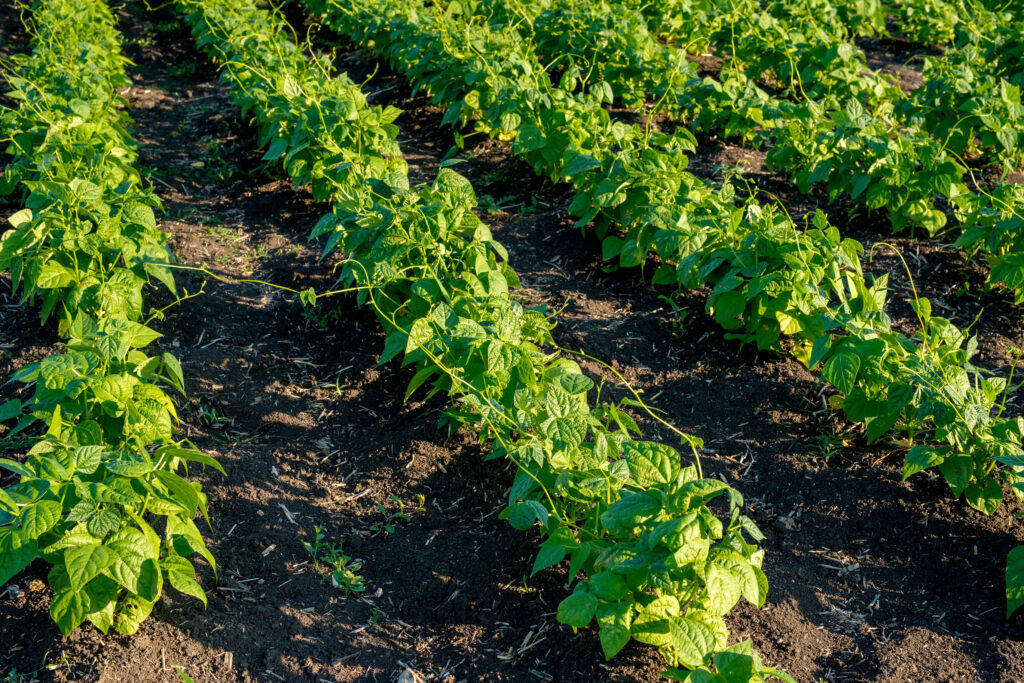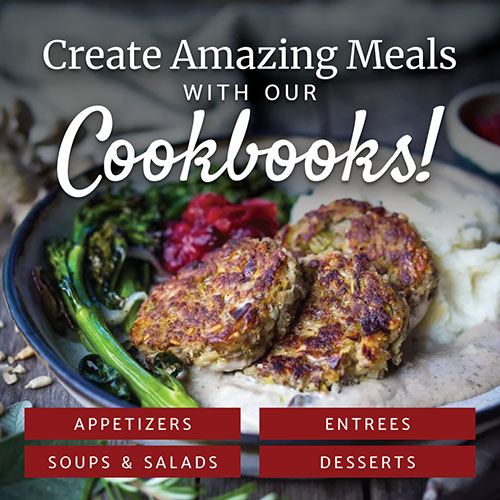
At Randall Foods, we produce our beans with love and care. We pack our beans in transparent jars so that you can see them before you purchase them. We talk a bit about how we create them on our label, but there’s a lot more to the story that can’t fit on the jar.
Here’s an explanation of what goes on behind the scenes as we source and prepare our bean products.
We have strong relationships with the highest-quality growers.
If we had to describe a perfect relationship between a food company and its customers, it would be a company that delivers healthy, affordable, and sustainable foods to customers who can trust that every purchase they make will be top-quality. To bring this vision into reality, we must begin the positive cycle with sustainably grown, ethically produced beans.
For us, that means partnering with U.S.-based growers with high standards for bean quality, food safety, customer service, and ecologically sound production practices. If we didn’t have full confidence that our growers could maintain the kind of quality we require, we wouldn’t work with them.
We have some experience farming. Meredith and I own and run an organic farm in Tennessee. It gives us an appreciation for the dedication and professionalism required to grow the highest quality products, and it helps us to know what to look for in our suppliers.
We use only US #1 Grade beans, as rated by the USDA.
The U.S. Department of Agriculture outlines strict standards for bean quality. They grade on a scale from one to three, with grade one being the highest quality and grade three having some wiggle room for defects, damage, and foreign materials.
Therefore, we are careful to use only the highest possible grade of beans in our products: Grade One.
But for us, Grade One is not enough. We insist that our bean suppliers provide us with “Randall Quality” beans. That’s a standard way above US #1. We insist on super-clean beans with the absolute minimum amount of foreign material.
As beautiful as a field of growing beans can be, that field also contains many things—soil, plant leaves, and stones, for example—that you wouldn’t want to eat. That’s why we insist that our beans be triple-cleaned.
This triple-cleaning process that our suppliers use includes:
- Milling: The beans are passed over multiple screens with various-sized holes, and foreign material that’s either larger or smaller than the beans gets separated out as one or the other falls through the screen’s openings.
- Gravity Filtration: As milling eliminates particles of a different size than the beans, gravity filtration separates out materials of different weights. One machine causes lighter material, such as leaves or other plant matter, to fall to one side while the heavier beans pass through. Another machine does the same thing, but with heavier materials such as stones.
- Electric Eye Sorting: While milling and gravity filtration does a fairly good job of eliminating any particles that aren’t beans, there’s always a chance that a perfectly sized and weighted non-bean makes it through the machines. An electric eye sorter is the last step on the cleaning journey, and its job is to find and remove these remaining materials. The machine examines every piece of material that passes through based on the color and reflectivity of the surface. Anything that doesn’t look like a bean—or looks like a damaged, defective bean—gets removed from the batch.
- Washing: After getting rid of foreign material, the beans are washed in water to eliminate any residual “dust” and then quickly re-dried.
Though we hold our growers to extremely high standards, we believe it’s never enough to rely on someone else’s promises when it comes to the quality of our bean products. That’s why we do our own cleaning and testing. Prior to processing our beans are washed/rinsed. They then travel up a “riffle” that uses flowing water to eliminate any remaining foreign material.
We take pride in using traditional glass jars.
There’s a reason Grandma always uses glass jars in her canning process, and that’s a tradition we’re happy to carry forward.
Glass jars have fallen out of fashion in recent years. It is much easier to produce foods in metal cans instead of glass jars. Moreover, cans are lighter and less likely to be damaged while being transported.
But while cans are great for food producers to save money, they are bad for consumers. Glass jars have notable benefits compared to the cans you’re probably used to seeing on store shelves. Quite simply, glass jars are better for you, the consumer.
Metal cans often contain bisphenol A (BPA). It’s typically found within the lining of the cans because it helps to prevent the metal from corroding.
BPA is a known endocrine disruptor that emulates estrogen in the body. Additionally, it can cause thyroid problems and even hinder normal neurological development in fetuses and young children. We prefer to steer clear of any containers that might use BPA because those health risks are simply not worth saving a few pennies during the packaging process.
Perhaps less importantly—but still important to us—metal cans leave a slightly metallic flavor behind in the foods they contain. Glass jars impart no flavor, so the only thing you’ll taste after you pop open a jar of Randall Beans is delicious beans! We want you to taste the beans, not a can.
Another reason we like glass jars is that they allow you, the consumer, to see what you are buying. When you buy canned beans, you don’t know what you are getting until you get home and open the can. By then it’s too late. We want you to see what you are buying before you buy it. We have nothing to hide!
Finally, we prefer to use glass jars over metal cans for environmental reasons. Unlike metal cans made from a composite of materials and chemicals, glass can simply be melted down and reformed into a new product during the recycling process. Plus, many of our customers tell us they love to keep the extra empty jars to reuse as storage for craft materials or as replacements for plastic refrigerator containers. Re-using and recycling our glass jars is a nearly zero-waste solution that can help you do your part to combat environmental problems.
Our products are affordable and easy to find.
Feeling hungry? There’s no need to order Door Dash when you could open a jar of beans and be most of the way toward a nutritious, healthful meal that costs far less than you’d pay for fast food. Experiment with fun ways to prepare them, and let us know your favorite recipes! Or, if inspiration is elusive at the moment, try one of these tasty white bean recipes tailored specifically for use with our beans and jar sizes.
If you’re wondering, “Where can I find a jar of Randall Beans near me?” you’ll be happy to know you can find Randall Beans at Kroger, Meijer, Wal-Mart stores—and most other grocery stores—in the midwest, in addition to other locations throughout the country.
If we’re not in a grocer near you yet, take heart. You can order a case of Randall Beans from our website.

